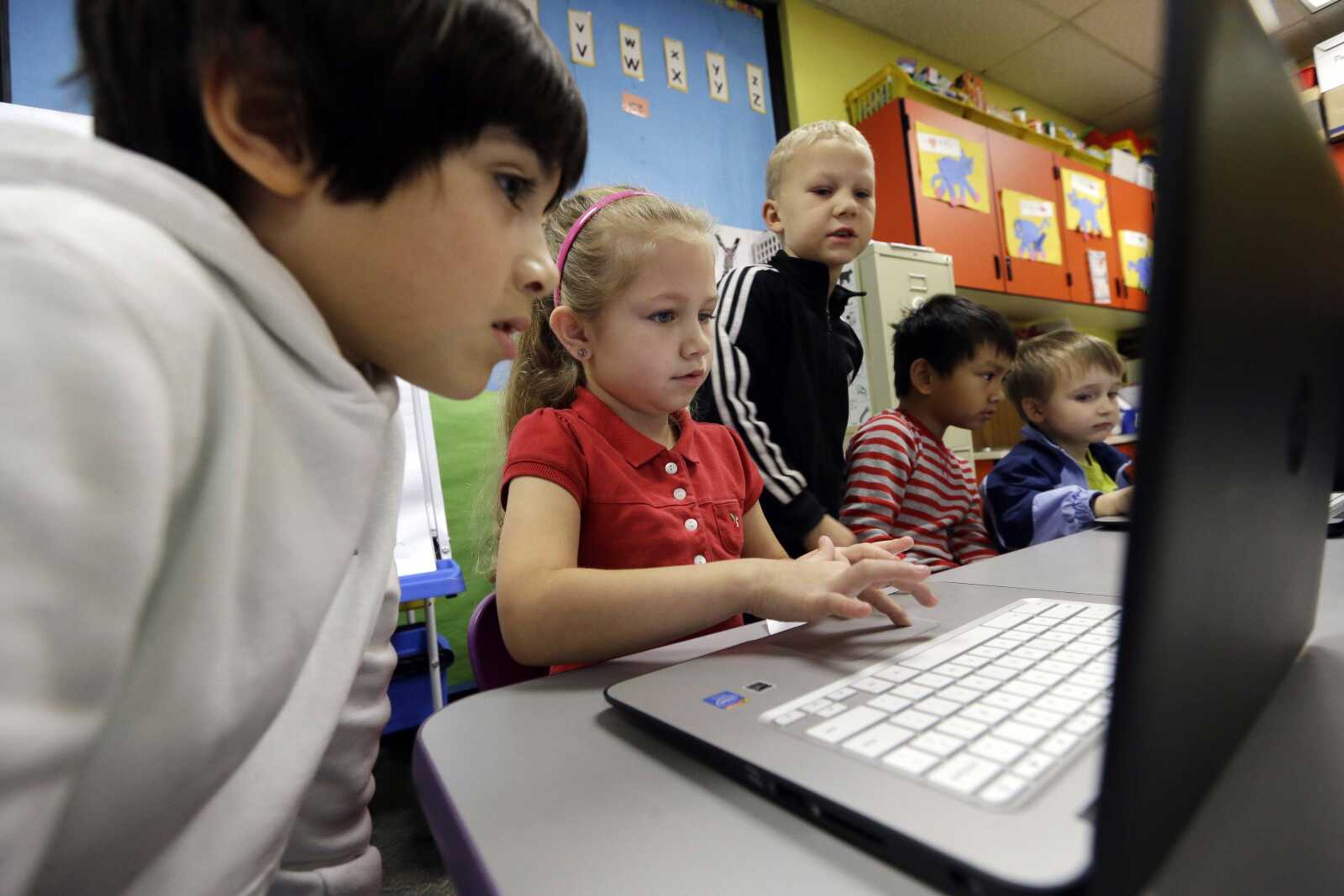Schools push to expose more students to computer science
MARYSVILLE, Wash. -- Moving her finger over the laptop trackpad, 6-year-old Lauren Meek dragged and dropped a block of code to build a set of instructions. She clicked the "run" button and watched as the character moved through a maze. She then pumped her fist in excitement...
MARYSVILLE, Wash. -- Moving her finger over the laptop trackpad, 6-year-old Lauren Meek dragged and dropped a block of code to build a set of instructions. She clicked the "run" button and watched as the character moved through a maze. She then pumped her fist in excitement.
"Yes! This is so easy," said Lauren, a kindergartener at Marshall Elementary in Marysville, north of Seattle.
This fall, most elementary-school students in the Marysville School District are getting 40-minute weekly computer-science lessons as part of their core instruction -- part of a growing effort nationwide to expose more public-school children to computer science as early as kindergarten.
Backed by technology leaders, not-for-profits and companies, schools in New York, San Francisco and other cities have committed to offer computer science to students in all grade levels. Chicago also says computer science will eventually become a high-school requirement.
Supporters said it's not just about learning how to code, but learning how computers work.
"In the 21st century, computer science is just as foundational as biology, chemistry," said Hadi Partovi, founder and CEO of Code.org, a Seattle-based national not-for-profit that works to expand access to computer science and increase participation by women and minorities.
Learning computer science opens the door to high-demand jobs. By 2020, 4.6 million of 9.2 million science, technology, engineering and math jobs will be in computing, according to the U.S. Bureau of Labor Statistics.
Connect with the Southeast Missourian Newsroom:
For corrections to this story or other insights for the editor, click here. To submit a letter to the editor, click here. To learn about the Southeast Missourian’s AI Policy, click here.










